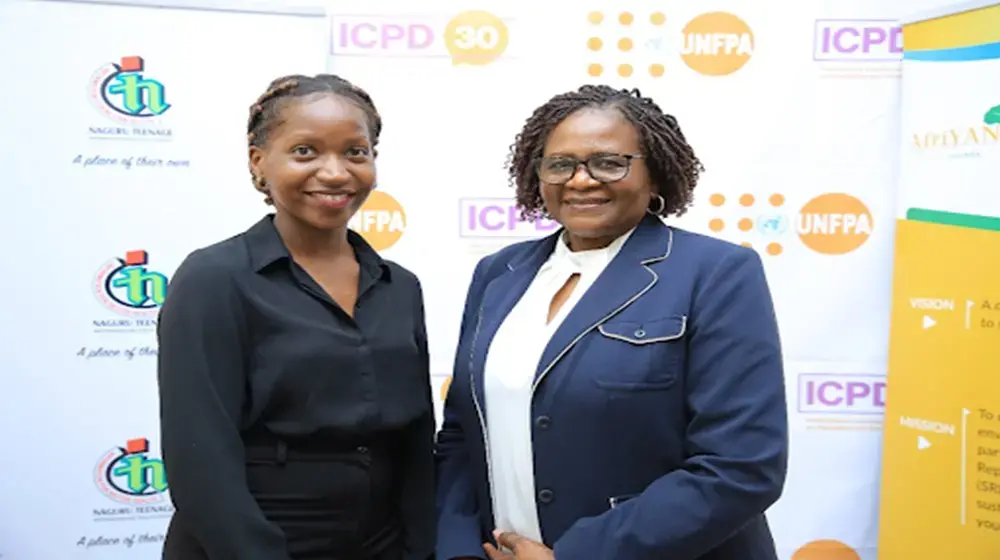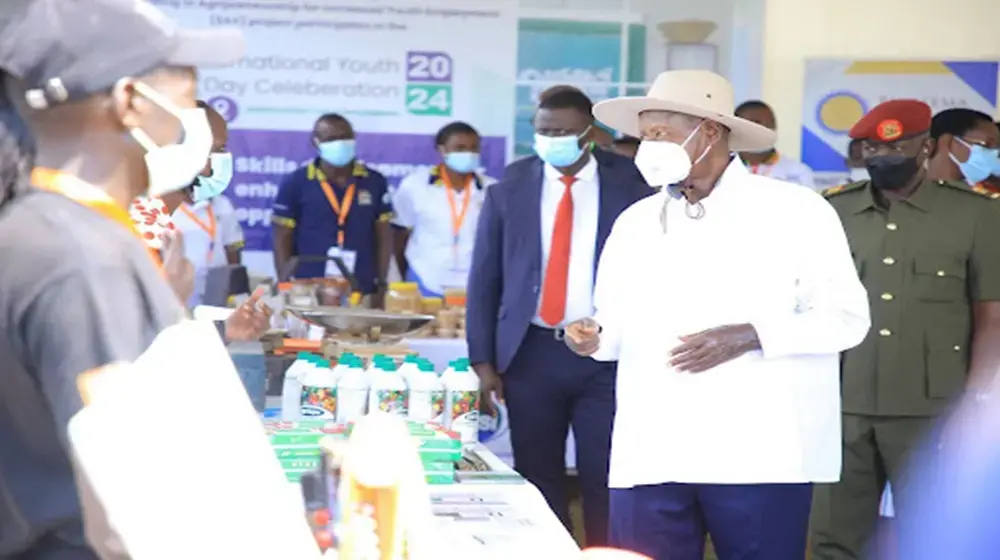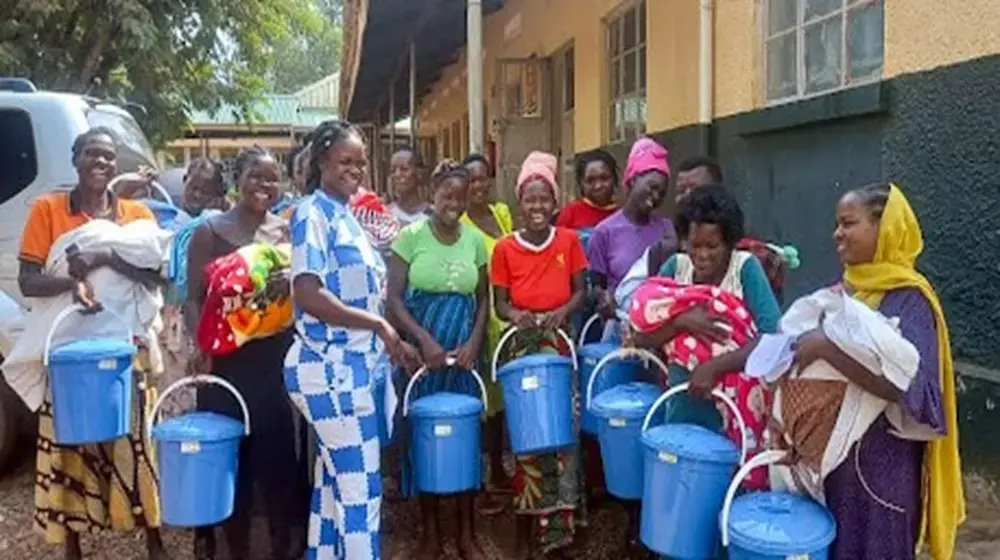KAMPALA: Stakeholders in the campaign against obstetric fistula in Uganda have collectively called for deliberate actions to eliminate the condition with in a generation by addressing the underlying causes and drivers.
An obstetric fisula is a hole between the birth canal and the bladder or rectum caused by prolonged, obstructed labour without treatment. It is almost exclusively a condition of the poorest, most vulnerable and marginalized women and girls. It leaves women leaking urine, feaces or both, and often leads to chronic medical problems, depression , social isolation and deepening poverty.
During a webinar organized by the Ministry of Health to commemorate the International Day to End Fistula on May 23, the panelists were in consensus that fistula is a social problem and a condition caused by many factors including poverty, gender inequalities, and attitudes and beliefs that promote harmful cultural practices.
Supported by UNFPA, the webinar on the topic: ‘Ending Fistula Within a Generation: What is the role of stakeholders’ was broadcast live on Uganda Broadcasting corporation UBC TV and on social media. Panelists included Dr. Jackson Amone, Commissioner Clinical services (Ministry of Health), Ms Angella Nakafeero, Commissioner for Gender and women affairs (Ministry of Gender, Labour and Social Development), Dr. Patrick Kagurusi, Head of Programmes (AMREF) and Dr. Fred Kirya an Obstetric Fistula surgeon. UNFPA was represented by the Representative Mr. Alain Sibenaler.
“Fistula is preventable. But if we are to address fistula we need to address the underlying causes and the drivers,” said Ms. Angella Nakafeero.
“In Uganda one of the drivers of fistula is Female Genital Mutilation (FGM). Another driver is teenage pregnancy. Girls are becoming pregnant because they find themselves in a situation where their reproductive system can no longer support multiple pregnancies. Along the way, they find themselves victims.”
“We also find issues of child marriage. With some cultural practices, young girls cannot even make a decision on what they are going through,” the Commissioner added.
In his submission, UNFPA Representative Mr. Alain Sibenaler recognized fistula as a great barrier to achievement of goals of Uganda’s National Development Plan, the Global Sustainable Development Goals (SDGs) and the ICPD agenda.
“It is important that we keep reminding ourselves that in addition to a health problem, fistula is also a social problem. We have seen in Uganda 75,000-100,000 cases every year occur in and really affecting the poorest of the rural poor mainly young girls,” said UNFPA Representative Mr. Alain Sibenaler.
Mr. Sibenaler also highlighted to the fact that as we address COVID-19, we must also continue addressing obstetric fistula and other maternal health related issues to ensure mothers deliver safely.
Fistula surgeon Dr. Kirya concurred: “COVID-19 may have a negative impact on our efforts. But since we are a committed team, we can try to mitigate. Although COVID-19 is around, we should not forget the impact of fistula on society,” he said.
Addressing the three delays
During the webinar, it was also highlighted to end fistula, the three delays that lead to maternal mortality and morbidity should be addressed.
According to Dr. Amone, these are the delay to make decision which can come from the spouse, or the delay to make decision because the mother is not sensitized; the second delay is the infrastructure, the transport to move the mother from the community to where she can access skilled care; and the final one is the infrastructure where the mother can access the services.
Positive masculinity
The role of men as partners in ending fistula was also discussed: “When it comes to prevention, I do believe that we really have to start changing mentalities and mindsets. Positive masculinity is very important contributor to changing mindsets,” Mr. Sibenaler said.
He said in collective effort within the larger family of UN in Uganda, UNFPA is focusing on delivering an integrated package of rights; the right to equality, right to be free from violence, the right to have good education and information on sexuality, the right to family planning and the right to good and menstrual and maternal health.
“These are some of the key steps that can provide an answer to this terrible condition that is totally unacceptable in today’s times,” Mr. Sibenaler said.
KAMPALA: Stakeholders in the campaign against obstetric fistula in Uganda have collectively called for deliberate actions to eliminate the condition with in a generation by addressing the underlying causes and drivers.
During a webinar organized by the Ministry of Health to commemorate the International Day to End Fistula on May 23, the panelists were in consensus that fistula is a social problem and a condition caused by many factors including poverty, gender inequalities, and attitudes and beliefs that promote harmful cultural practices.
Supported by UNFPA, the webinar on the topic: ‘Ending Fistula Within a Generation: What is the role of stakeholders’ was broadcast live on Uganda Broadcasting corporation UBC TV and on social media. Panelists included Dr. Jackson Amone, Commissioner Clinical services (Ministry of Health), Ms Angella Nakafeero, Commissioner for Gender and women affairs (Ministry of Gender, Labour and Social Development), Dr. Patrick Kagurusi, Head of Programmes (AMREF) and Dr. Fred Kirya an Obstetric Fistula surgeon. UNFPA was represented by the Representative Mr. Alain Sibenaler.
“Fistula is preventable. But if we are to address fistula we need to address the underlying causes and the drivers,” said Ms. Angella Nakafeero.
“In Uganda one of the drivers of fistula is Female Genital Mutilation (FGM). Another driver is teenage pregnancy. Girls are becoming pregnant because they find themselves in a situation where their reproductive system can no longer support multiple pregnancies. Along the way, they find themselves victims.”
“We also find issues of child marriage. With some cultural practices, young girls cannot even make a decision on what they are going through,” the Commissioner added.
In his submission, UNFPA Representative Mr. Alain Sibenaler recognized fistula as a great barrier to achievement of goals of Uganda’s National Development Plan, the Global Sustainable Development Goals (SDGs) and the ICPD agenda.
“It is important that we keep reminding ourselves that in addition to a health problem, fistula is also a social problem. We have seen in Uganda 75,000-100,000 cases every year occur in and really affecting the poorest of the rural poor mainly young girls,” said UNFPA Representative Mr. Alain Sibenaler.
Mr. Sibenaler also highlighted to the fact that as we address COVID-19, we must also continue addressing obstetric fistula and other maternal health related issues to ensure mothers deliver safely.
Fistula surgeon Dr. Kirya concurred: “COVID-19 may have a negative impact on our efforts. But since we are a committed team, we can try to mitigate. Although COVID-19 is around, we should not forget the impact of fistula on society,” he said.
Addressing the three delays
During the webinar, it was also highlighted to end fistula, the three delays that lead to maternal mortality and morbidity should be addressed.
According to Dr. Amone, these are the delay to make decision which can come from the spouse, or the delay to make decision because the mother is not sensitized; the second delay is the infrastructure, the transport to move the mother from the community to where she can access skilled care; and the final one is the infrastructure where the mother can access the services.
Positive masculinity
The role of men as partners in ending fistula was also discussed: “When it comes to prevention, I do believe that we really have to start changing mentalities and mindsets. Positive masculinity is very important contributor to changing mindsets,” Mr. Sibenaler said.
He said in collective effort within the larger family of UN in Uganda, UNFPA is focusing on delivering an integrated package of rights; the right to equality, right to be free from violence, the right to have good education and information on sexuality, the right to family planning and the right to good and menstrual and maternal health.
“These are some of the key steps that can provide an answer to this terrible condition that is totally unacceptable in today’s times,” Mr. Sibenaler said.
-Story by Evelyn Matsamura Kiapi





